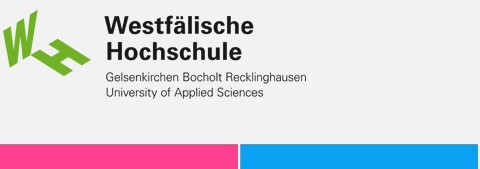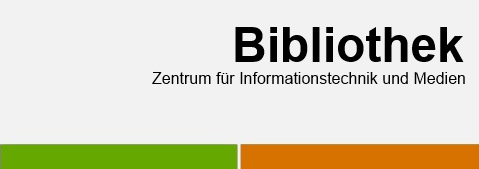Filtern
Erscheinungsjahr
Dokumenttyp
- Konferenzveröffentlichung (344) (entfernen)
Sprache
- Englisch (210)
- Deutsch (132)
- Französisch (1)
- Rumänisch (1)
Schlagworte
- Bionik (9)
- Akkreditierung (3)
- Gespenstschrecken (3)
- Haftorgan (3)
- Strukturoptimierung (3)
- adhesion (3)
- stick insects (3)
- Competency-Oriented Exams (2)
- E-Learning (2)
- Field measurement (2)
- Human-Robot Interaction (2)
- Leichtbau (2)
- Solar modules (2)
- Sportsoziologie (2)
- Sportökonomie (2)
- Tetraplegie (2)
- Virtuelle Hochschule (2)
- 360° Panorama (1)
- API 1130 (1)
- Abusive Supervision (1)
- Air handling unit (1)
- Akademischer Grad (1)
- Alltagsunterstützende Assistenzlösung (1)
- Alternative Geschäftsmodelle (1)
- Arbeitsbelastung (1)
- Artificial Intelligence (1)
- Assisted living technologies (1)
- Assistive robotics (1)
- Augmented Reality (1)
- Automatisierung, Journalismus, Literaturüberblick (1)
- Automatisierungstechnik (1)
- Autonomous Agents (1)
- Bachelor-Studiengang (1)
- Bachelorstudiengang (1)
- Bachelorstudium (1)
- Belgien (1)
- Berufsbefähigung (1)
- Bildverarbeitung (1)
- Biomimetics (1)
- Bologna-Prozess (1)
- Building Information Modeling (1)
- Burnout (1)
- COIL (1)
- CPM (1)
- Climate change (1)
- Constructive Alignment (1)
- Continuous Assessment (1)
- Continuous Queries (1)
- Crowdfunding (1)
- Curriculanormwert (1)
- Daseinsvorsorge (1)
- Datalog (1)
- Datenjournalismus (1)
- Deductive Databases (1)
- Deutschland (1)
- Deutschland / Technische Regeln für brennbare Flüssigkeiten (1)
- Digitalisierung (1)
- Distributed Software Development (1)
- Elastizitätsmodul (1)
- Elektrolyseure (1)
- Energieeffizienz (1)
- Erneuerbare Energien (1)
- Erweiterte Realität <Informatik> (1)
- Exams with Third-Party Applications (1)
- Fehlererkennung (1)
- Fehlerortung (1)
- Flipped Classroom (1)
- Formative Assessment (1)
- Future capacity needs (1)
- Gehirn & Computer (1)
- Gentrifizierung (1)
- Großveranstaltung (1)
- Hochschulbildung (1)
- Human-centered computing (1)
- Hydraulic compression, Carbon Nano Fibers, PEM Fuel Cells, Catalyst utilization (1)
- Hygiene (1)
- Incremental Evaluation (1)
- Informatik (1)
- Informatikstudium (1)
- Ingenieurstudium (1)
- Interactive Voting Systems (1)
- Interaktion (1)
- Intercultural Collaboration (1)
- Internationalisierung (1)
- Journalismus (1)
- Journalistenausbildung (1)
- Juristenausbildung (1)
- KMU (1)
- Kalman filter (1)
- Klimatechnik (1)
- Klimawandel (1)
- Klimaänderung (1)
- Kohlenstoff-Nanoröhre (1)
- Kreditpunktesystem (1)
- Künstliche Intelligenz (1)
- Leak detection (1)
- Leckerkennung (1)
- Leckortung (1)
- Lecksuchgerät (1)
- Lecküberwachung (1)
- Leistungsreserve (1)
- Machine Learning (1)
- Maschinenintelligenz (1)
- Master-Studiengang (1)
- Masterstudiengang (1)
- Masterstudium (1)
- Mastery Experience (1)
- Mathematikstudium (1)
- Maus (1)
- Membran-Elektroden-Einheit (1)
- Mensch-Roboter (1)
- Menschheitsentwicklung (1)
- Mikrofotografie (1)
- Mixed Reality (1)
- Modularisierung (1)
- Multi-Agent System (1)
- Nachhaltigkeitsreporting (1)
- Naturwissenschaftliches Studium (1)
- NeRF (1)
- Online Programming Exams (1)
- Online Supervision (1)
- Online-Studium (1)
- PEM Electrolysis, Hydrogen, Hydraulic Compression, High Pressure (1)
- PEM fuel cells; electrode preparation; carbon nanofibers; in-situ performance test (1)
- Peer Assessment (1)
- Peer Instruction (1)
- People with disabilities (1)
- Performance prediction (1)
- Polymer-Elektrolytmembran-Brennstoffzelle (1)
- Project-based Learning (1)
- Qualifikationsrahmen (1)
- RLT-Geräte (1)
- Raumluftströmung (1)
- Rechtssprache (1)
- Regeln der Technik (1)
- Rescue Robotics (1)
- Robot assistive drinking (1)
- Robot assistive eating (1)
- Robotik (1)
- Selbstoptimierung (1)
- Sensortechnik (1)
- Skalierung (1)
- Small UAVs (1)
- Smart Grid (1)
- Social Learning (1)
- Standortfaktor (1)
- Standortpolitik (1)
- Student Activation (1)
- Studierbarkeit (1)
- Supercomputer (1)
- TRFL (1)
- Temperature coefficients (1)
- Testsystem (1)
- Transformative Teaching (1)
- Update Propagation (1)
- Urban heat island (1)
- Visual Monocular SLAM (1)
- Wasserstoffenergietechnik (1)
- Weiterbildung (1)
- Wirtschaftsjurist (1)
- Workload (1)
- Wärmepumpen, VDI 4645, Jahresarbeitszahl, Wärmewende, Bewertungstool (1)
- Young´s modulus (1)
- Zustandsmaschine (1)
- biomimicry (1)
- bionik robotik ameisen (1)
- consent banner (1)
- cookie banner (1)
- cookies (1)
- human-centered design (1)
- hybrid sensor system (1)
- leak locating (1)
- leak monitoring (1)
- participatory design (1)
- privacy (1)
- risk management (1)
- sensor fusion (1)
- state machine (1)
- user acceptance (1)
- web measurement (1)
- Ähnlichkeitstheorie (1)
- Übersetzung (1)
Institut
- Institut für Internetsicherheit (69)
- Westfälisches Institut für Gesundheit (63)
- Informatik und Kommunikation (45)
- Westfälisches Energieinstitut (35)
- Maschinenbau Bocholt (29)
- Wirtschaft und Informationstechnik Bocholt (26)
- Elektrotechnik und angewandte Naturwissenschaften (22)
- Wirtschaftsrecht (8)
- Institut für Innovationsforschung und -management (5)
- Institut für biologische und chemische Informatik (5)
Cookie notices (or cookie banners) are a popular mechanism for websites to provide (European) Internet users a tool to choose which cookies the site may set. Banner implementations range from merely providing information that a site uses cookies over offering the choice to accepting or denying all cookies to allowing fine-grained control of cookie usage. Users frequently get annoyed by the banner’s pervasiveness as they interrupt “natural” browsing on the Web. As a remedy, different browser extensions have been developed to automate the interaction with cookie banners.
In this work, we perform a large-scale measurement study comparing the effectiveness of extensions for “cookie banner interaction.” We configured the extensions to express different privacy choices (e.g., accepting all cookies, accepting functional cookies, or rejecting all cookies) to understand their capabilities to execute a user’s preferences. The results show statistically significant differences in which cookies are set, how many of them are set, and which types are set—even for extensions that aim to implement the same cookie choice. Extensions for “cookie banner interaction” can effectively reduce the number of set cookies compared to no interaction with the banners. However, all extensions increase the
tracking requests significantly except when rejecting all cookies.


